Hi brothers and sisters in Christ,
I hope you’re all going to enjoy the GC meetings whether you are there or whether you join in Spirit. And whether we agree perfectly on all things or not, we can all be unified in the main essentials and recognize that people can be honest and wanting the best, but make mistakes as Peter did (Acts 10) and SDA founders did. The church and people in it won’t be flawless until Jesus come and sin is no more, but we should constantly aim for perfection and progress to the best of our ability (Matt 5:48) so as to improve life the most and reduce harm the most (check out our mission project pages if you/your church need a project to help out with).
Below are some main points to consider on the issue of women’s ordination at GC and in the future. You can also check out other articles on this topic by by pastor David Bissell and Bryan Bissell under the “Christian Issues” menu. If you want a much more in depth overview, check out:
Women’s ordination
God’s gold standard (1 Tim 4-8, Matt 5-18) should guide us.
1) ETERNAL LIFE/BEST EARTH LIFE.
The highest aim of godliness is the best life for as many as possible on this earth and especially for eternity. (1 Timothy 4:8, Hosea 8:3 Jeremiah 35:7, 1 Thess. 5:21 http://www.truth-is-life.org/GoodLifeEvidence.html). Sometimes that requires sticking to patterns and laws that godly people in ancient times followed (such as the 10 commandments and health laws). But sometimes that means dropping old standards (like the Levitical priesthood) and opening the doors for more equality so that Gentiles can be church members and pastors (Acts 10). Conservatives and liberals have both been wrong many times in history. Follow God’s principles of finding truth (especially the gold standard of pragmatic benefit for all long term) above any human group’s ideas. This will result in the best quality and quantity of life for you, those you love and care about, the church and the world.
God seems to be doing a great work for eternity through the work of pastor HaoYaJie who is the pastor of the Beiguan Seventh-day Adventist Church in Shenyang, China. She left her job to start it in her living room with just 10 people after being impressed by God while reading Ellen White’s writings to do so. Now this church has ~7,000 members. The evidence strongly suggests that God is leading in the work she and many others like her are doing similar to how He opened the early church to accepting Gentile believers. Would SDAs concerned about eternity want to reject ordination which would surely significantly reduce the number of converts brought to the truth through ordained Chinese female pastors?
https://player.vimeo.com/96839367 (sorry, can’t be embedded, but it’s a good one, worth clicking.)
Meet other ordained Chinese pastors doing good work for God!
See others here:
https://simonesamuels.wordpress.com/2015/06/11/womens-ordination-in-adventism-a-resource-list/
2) EQUALITY IS THE GOAL:
The Bible and Ellen White agree that all should be equal in rights, opportunities, sharing resources, etc. (Galatians 3:28, Matthew 23:8, Numbers 15:15, Ezekiel 47:14, 2 Corinthians 8:13-14, Joshua 13-18, Ezekiel 45-46, etc.) but then freedom to make the most of these opportunities and succeed with the talents God has given them, hard work, creativity, etc. Equality by definition means a fair chance at any position that God has given a person a calling to. To deny a woman an equal chance at any position is no different from denying a black person or an Asian a chance to fulfill their calling in some position. It empties the term “equal” of all its meaning no different from someone claiming that a slave is actually free. See also this site for much more on how most rights derive from fair economic rights which the Bible enjoined in jubilee economics http://www.truth-is-life.org/jubileeeconomics.html. This is also similarly true in ordination rights for men and women).
One reason equality is so crucial and so effective is because it increases interdependence and synergy among all members. Yes, we could be independent atoms, but when we synergize, we act as a body and cover up the weaker abilities that each of us have and become much stronger, ONE in Christ.
https://youtube.com/watch?v=7mGVOekKMRs
3) THE GOSPEL RESTORES GOD’S IDEALS:
As people are ready for it, God has more and more truth for us (John 16:12). The goal of the gospel is to restore the image and ideals of God in mankind as much as we can, getting closer and closer to what life will be like in heaven. One of these ways of restoration is equality:
- “The secret of unity is … equality of believers in Christ.” (EGW, 1SM 259)
- “When God created Eve, He designed that she should possess neither inferiority nor superiority to the man, but that in all things she should be his equal.” (TM p. 485)
- [Jesus] calls upon us to…adopt principles that will restore in us the divine image. The Ministry of Healing, 114, 115.
4) DECEPTION IS A PARASITE OF TRUTH:
Ellen White rightly says:”Error cannot stand alone, and would soon become extinct if it did not fasten itself like a parasite upon the tree of truth… and as traditions pass on, from age to age, they acquire a power over human mind…Satan has had his hand in all this; for by directing men to false standards, he misshapes the human character, and causes humanity to acknowledge him as supreme.” Evangelism p. 589
Many assume that the traditional thinking is biblical and that we must not leave that thinking unless we have a “Thus saith the Lord.” The problem is that many times in Bible history, traditional thinking is in fact based on man’s ideas that ignores or even sets aside Bible ideas. Read Mark 7:5-13. But at times liberal ideas do that too. Sticking to the conservative way or the liberal  way is simply not a way to find truth (EGW warned us against aligning with any party on any side). It’s a way to confirm biases and sometimes to follow the plan of those at Babel, to join in rebellion against God. In quite a few cases you can only choose one of these options:
way is simply not a way to find truth (EGW warned us against aligning with any party on any side). It’s a way to confirm biases and sometimes to follow the plan of those at Babel, to join in rebellion against God. In quite a few cases you can only choose one of these options:
a) God’s way or
b) The liberal way or
c) The conservative way
Don’t get conned into the deceptive practice of ignoring dictionary definitions and context. Distorting vocabulary words causes all sorts of doctrinal confusion.
a) It causes people to calling Sabbath Sunday which opened the door to Darwinism which helped killed millions.
b) It causes people to claim that death is a place of consciousness which led to many kings exploiting people to make their afterlife comfortable.
c) It causes people to claiming that faith has no evidence, contradicting the Biblical idea that faith is based on evidence, facts, truth and proof (Luke 1:1-4, Acts 1:1-4, 1 Corinthians 15:1-8, etc.).
d0 It causes people to think that “under the law” (Paul’s phrase for legalism since that term didn’t exist in Greek) means we don’t have to keep the commandments (contradicting Jude 1:3,4; 1 john 2:1-9 and many other texts)
When the Bible says all are equal, it means that. When it says there’s a priesthood of believers and gives a gospel commission to both men and women to preach and baptize, it means that too. When Ellen White says that women can be pastors, ministers, in the gospel ministry, those terms are consistently used of ordained leaders of churches and nothing else.
But do consider culture and word changes over time. When Jesus says the Sabbath was made for man, it’s a general statement that applies to women too. Similarly, Paul’s statements that bishops and deacons should have one wife is a general principle of marital faithfulness for all sexes. This is supported by strong evidence that Phoebe was a deacon and that John and Timothy were single pastors. Avoid absolutism and make room for linguistic devices and generalities.
5) FEAR AND FALLACIES SUBVERT GOD’S TRUTH:
God has told us that His laws bring good into our lives. This is also a way we can test and verify if our views about truth and doctrine are correct. Many though change this for reasoning based on fear even though God’s law casts out fear.
Many fear that ordaining women will lead to ordaining homosexuals. This is no different from those racist extremists in the past who claimed that racial equality would lead to the destruction of marriage and society. We know that women’s ordination is bringing 1000s to belief in God (http://vimeo.com/96839367). We also know that homosexuality does massive damage to human beings causing the loss of 8-30 years as even secular studies at Oxford, Berkeley and even gay groups have shown. Children of gay parents also do worse on ~77 of 80 factors and it erodes societal freedoms. See these sites for starters.
questions.truth-is-life.org/homosexuality.html, http://downloads.frc.org/EF/EF13I75.pdf, http://www.thepublicdiscourse.com/2015/04/14899/
If we see significant damage being done by women’s ordination, then we should seriously consider opposing it. But in fact, we are finding that church rigidity on gender roles, the attitude that women are to submit to men and ignoring the Bible command that all are to submit (Eph. 5:21) and that leaders are to be servants (Matthew 20:26), has been a cause of serious harm to women. The July 19, 1993, issue of Christianity Today cited the book “Battered into Submission: The Tragedy of Wife Abuse in the Christian Home” by James and Phyllis Alsdurf. Their research indicated that “the probability of wife abuse increases with the rigidity of a church’s teachings, especially teachings pertaining to gender roles and hierarchy.”
In addition, if the church doesn’t demonstrate equality, then there won’t be equality in most homes. And as Diane Halpern, a professor of psychology at Claremont McKenna College, has written:
“We can’t have equality in work, if we don’t have equality in the home.”
www.livescience.com/20011-brain-cognition-gender-differences.html
6) GOD SOMETIMES CONDESCENDS TO USE PLAN B:
God wanted a theocracy, but agreed to a monarchy when people wanted that for cultural and emotional reasons. Similarly, at times has condoned eating clean meat even though that’s not best. Much historical evidence shows us that women priestesses were often sacred prostitutes and that when they did speak in public, they were ridiculed as liars. For these and other reasons, it seems that God used mostly men in both spiritual leadership in Bible times so as to protect women from the harm and temptations of surrounding cultures that were abusive to women. But when we can avoid those harmful things, we should do what we can to return to God’s plan A, which is full equality of human beings, submitted to their Creator. But be patient with others who aren’t on the same page as you are. God’s still working on them as He is on you.
Listen to Hyveth Williams talking about how long it took her to change her views to follow God’s calling. This helps her be patient with others.
7) JESUS IS THE PATTERN, NOT PEOPLE:
Sometimes those against women’s ordination try to argue that we should follow patterns that people in Bible times did. The problem is that they don’t do this themselves. They don’t insist on a monarchy even though that is a Bible pattern. They don’t insist on men going to Jerusalem 3 times a year even though that is a biblical law. They don’t insist on wearing robes/tassels, shaving corners of beards, stoning rebellious children and many others. Nor do they walk everywhere they go, ride donkeys, have mostly agricultural jobs and so much more. How many Bible people used internet or facebook? Nobody on either side follows all patterns in the Bible. Some are very good and important to follow. Some are not. Some can even be harmful just like it would be harmful to education for a mother to ban a high school student from going outside the yard, while it would be valuable protection for a child.
We should remember James White reasonable views:
“But if it be asked, Where are your plain texts of scripture for holding church property legally? we reply, The Bible does not furnish any; neither does it say that we should have a weekly paper, a steam printing press, that we should publish books, build places of worship), and send out tents. Jesus says, “Let your light so shine before men,” etc.; but he does not give all the particulars how this shall be done. The church is left to move forward in the great work, praying for divine guidance, acting upon the most efficient plans for its accomplishment. We believe it safe to be governed by the following rule:
All means which, according to sound judgment, will advance the cause of truth, and are not forbidden by plain scripture declarations, should be employed.” (James White, RH, July 21, 1859, p. 68; and April 26, 1860, p. 180. Emphasis supplied.)
This rule of what does the most good for human beings is what should guide us in determining whether women should be ordained or not more than anything else. Does the ordination of women bring more people to salvation and to obedience to God’s laws, to mercy, forgiveness and a better character? Then we should ordain women since there is no law against women’s ordination anywhere in the Bible. There are no patterns of licensed women ministers in the Bible, and yet SDAs moved forward in God to do that and had dozens of very effective women pastors, such as Lulu Wightman, one of the most effective pastors in our history. Those who are willing to have licensed pastors, but not ordained pastors are using inconsistent double standards that serve to harm and cripple the work of God and the ministry that God has called many women to.
Conflict can be helpful since it challenges us to study carefully which way is God’s way and is the primary way that progress in truth and human rights has happened in history(1 Cor. 11:19). It’s also very helpful for mental development. So don’t worry about there being some conflict and disagreement. It’s healthy if we remember to respect and love those who differ even if there may at times be very serious problems in their arguments. God will guide the ship safely through and keep perfecting us all so we are ready for His kingdom.
Above all, let us remember to follow Jesus as our ultimate pattern and follow the leading of His Holy Spirit
“You should imitate me, just as I imitate Christ.” 1 Corinthians 11:1 (see also John 16:5-15)
Maranatha brothers and sisters. We’re almost home!
Bryan Bissell
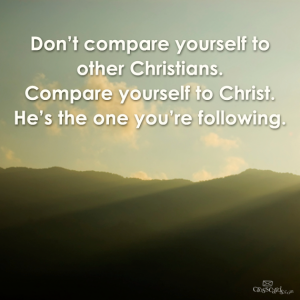



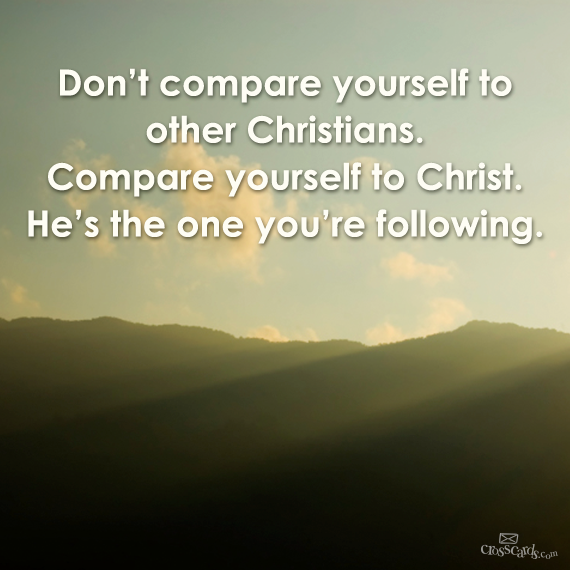


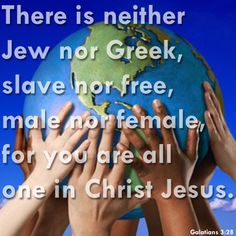

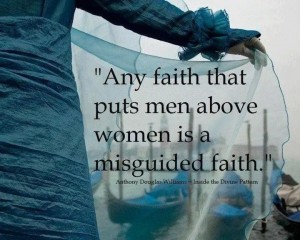

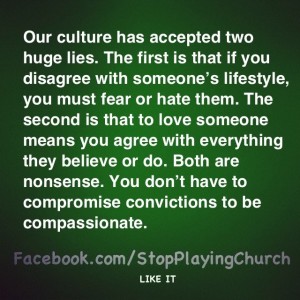

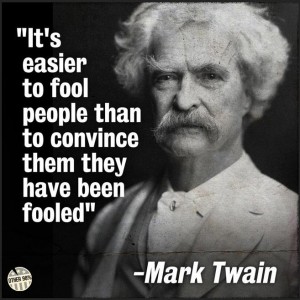


Womens Ordination None Dare Call it for what it is- Rebellion!
How can a pastor like me, who is against the ordination of women as pastors or local church elders, believe that there ought to be far more women serving our churches than we currently have? In fact, it might be well if large portion of the conference paid ministry was composed of women. Sound extreme? Read on.
I watched the recent proceedings of the Columbia and Pacific Union’s constituency meetings as both dealt with the issue of women’s ordination and also read the open letter to Elder Wilson written by Leona G. Running, Professor Emerita of Biblical Languages, Ph.D. DHL, Seminary, Andrews University. I don’t think we simply have a unity problem; I am picking up the scent of rebellion. Let me explain.
In my devotional reading I just read the story of the rebellion of Korah in Numbers 16. There was a division of function amongst the descendants of Kohath. His grandson Aaron was to serve as priest of the tabernacle. His other grandson, Korah was not to function as a priest but rather had the high honor of caring for the furniture of the tabernacle and was under the direct supervision of Eleazar, son of Aaron.
Why did God create such role distinctions? Didn’t He realize that this would create envy and jealousy? God saw what happened when He did this in heaven. He had appointed specific roles to the inhabitants there. Lucifer didn’t like his role and wanted the job assigned to the Son of God. He became envious and jealous of the Son of God, which led to open rebellion.
Sure enough, Korah began to envy the role of Aaron and to covet his job of being a priest. Could Korah have done as good a job at being a priest as Aaron?
Yes indeed. Korah wasn’t a part of the rebellion there at Mount Sinai. He was up on the mountain with Moses while Aaron was making a golden calf and causing Israel to worship this idol. I think Korah could have done a fine job of serving as a priest. And so did he and many others! Thus began a work towards achieving cousin equality.
Korah connected with Dathan and Abiram who were descendants of Reuben the first born of Jacob. These two men thought that they should have the role that Moses was fulfilling. These two had also gone up on Mount Sinai with Moses. These three men quietly gathered a group of 250 leading men to rally around their cousin equality mission.
And they rose up before Moses, with certain of the children of Israel, two hundred and fifty princes of the assembly, famous in the congregation, men of renown: And they gathered themselves together against Moses and against Aaron, and said unto them, Ye take too much upon you, seeing all the congregation are holy, every one of them, and the LORD is among them: wherefore then lift ye up yourselves above the congregation of the LORD? (Numbers 16:2, 3).
Why should ecclesiastical priestly authority not be shared by all who feel called to serve the Lord as priests? Notice their argument: all are equally holy and thus this exclusivity and discrimination of Aaron and his sons must come to an end.
They have a good point. Many prominent administrators, theologians, historians agreed that the time had come for cousin equality. Why should one cousin get to touch the holy things of God but an equally gifted and qualified cousin could not? Who authorized such discrimination? They believed it was Moses and Aaron who had come up with this: “wherefore then lift ye up yourselves above the congregation of the LORD?”
But it wasn’t Moses who set forth the qualifications for the priesthood. And one thousand years later it was still only the descendants of Aaron who could serve as priests. In the days of King Saul it could have been argued that the Aaronic priesthood was only relevant in the days of Aaron and Moses but now after all these years surely anyone who feels the call of God upon them should be allowed to serve without regard to linage. Surely we should get past those bigoted days of cousin discrimination, they may have reasoned. Saul thought he could offer the sacrifice just as well as Samuel and so he offered the sacrifice. For doing so, the Kingdom was taken from him (1 Samuel 13:8-14).
What was the reason that only descendants of Aaron could serve the church as priests? It wasn’t because they were better qualified or more spiritual. Remember Nadab and Abihu? No, the reason was because God said so and if that was all there was to it, that would have been reason enough.
What became of this movement for cousin equality? The earth opened up and swallowed Korah, Dathan and Abiram. Fire fell from God and burned up the two hundred and fifty princes who had joined them. Nearly fifteen thousand people lost their lives in this rebellion.
This is a very, very serious issue. To covet a position of spiritual authority that God has not assigned to us will lead us from indulging jealousy into open rebellion:
Jealousy had given rise to envy, and envy to rebellion. They had discussed the question of the right of Moses to so great authority and honor, until they had come to regard him as occupying a very enviable position, which any of them could fill as well as he. And they deceived themselves and one another into thinking that Moses and Aaron had themselves assumed the positions they held. The discontented ones said that these leaders had exalted themselves above the congregation of the Lord, in taking upon them the priesthood and government, but their house was not entitled to distinction above others in Israel; they were no more holy than the people, and it should be enough for them to be on a level with their brethren, who were equally favored with God’s special presence and protection” (Patriarchs and Prophets, p. 397).
The Aaronic priesthood was everlasting (Exodus 40:15). When God sets out the guidelines for who is qualified to perform the ecclesiastical functions of the temple services, they never change.
Just as there was a division of labor along genealogical lines with many ways of serving God in the temple that did not involve being a priest, so in the church today there is a division of labor along gender lines with many ways of serving God that do not involve being ordained with ecclesiastical authority. In the Christian era God has given clear guidelines that only men are authorized to fulfill the ecclesiastical leadership functions of His church.
However, both men and women have been called to “become pastors to the flock of God.” And a woman can do a work in pastoral ministry that far exceeds that of what a man can ever accomplish.
Did you hear that?
Let me repeat that: Men and women have both been called to “become pastors to the flock of God.” And a woman can do a work in pastoral ministry that far exceeds that of what a man can ever accomplish.
My wife can touch the hearts of people with a power that I will never possess. Why is this? Listen:
The Lord has a work for women as well as for men. They may take their places in His work at this crisis, and He will work through them. If they are imbued with a sense of their duty, and labor under the influence of the Holy Spirit, they will have just the self-possession required for this time. The Saviour will reflect upon these self-sacrificing women the light of His countenance, and will give them a power that exceeds that of men. They can do in families a work that men cannot do, a work that reaches the inner life. They can come close to the hearts of those whom men cannot reach. Their labor is needed (Review and Herald, August 26, 1902, emphasis added).
When a great and decisive work is to be done, God chooses men and women to do this work, and it will feel the loss if the talents of both are not combined (Ellen G. White, Letter 77, 1898).
It is the accompaniment of the Holy Spirit of God that prepares workers, both men and women, to become pastors to the flock of God (Testimonies, vol. 6, p. 322).
So we see here that women can do a work that men cannot do. God gives to them a power in pastoral ministry that exceeds that of men. This power comes from God. And God has not given this same degree of power to men.
If a man says that this is unfair, gender discrimination, he is repeating the cycle of jealousy, envy and rebellion of Korah. God has a right to give to women a power that exceeds that of men.
Men have also been given something that women have not been given. True, it may not seem as significant as what God has given to women but it still is only given to a man. To the male alone God has assigned the duties of ecclesiastical authority and pastoral leadership.
There is a broad field of pastoral ministry that God is calling women to engage in that does not entail congregational headship. Ellen White urged the wives of ministers to engage in ministry alongside their husbands. If the value of their role in pastoral ministry was recognized, there might be many more pastor’s wives hired in our conferences (see Addendum). They would assist their husbands in ministry, providing pastoral care especially for the women of the church.
If women had a spirit of humility and submission, God would pour out His Spirit and give to them a power that would touch the hearts of the people. If women would step up to the plate and take their rightful place in ministry, many more souls could be won to the kingdom. If our conferences would follow the counsel that the wives of pastor’s who work alongside their husbands are to be paid, these women whom God would empower for ministry, would not elect to go into other lines of work. Seventy percent of the membership in the Seventh-day Adventist Church today are women. We need to revive the idea of pastoral couples serving our churches. If we as a Church clearly understood the vital role of the pastor’s wife, I think the percentage of women serving in conference employed ministry, teaching and preaching the truth, would grow–perhaps twenty fold:
If there were twenty women where now there is one, who would make this holy mission their cherished work, we should see many more converted to the truth. The refining, softening influence of Christian women is needed in the great work of preaching the truth. The Lord of the vineyard is saying to many women who are now doing nothing, ‘Why stand ye here all the day idle?’ Zealous and continued diligence in our sisters toiling for the spread of the truth would be wholly successful, and would astonish us with its results (Review and Herald, January 2, 1879).
The printed page cannot accomplish alone the work that the living minister can do. He can explain the Scriptures to the people, praying with them and appealing to them, and making effective the truths of the Bible. Not merely one or two men are called to do this work, but many men and women who have ability to preach and teach the Word (Manuscript Releases, vol. 12, 165).
Women preaching and teaching? Yes indeed. My wife preaches in our three church district. She teaches a Sabbath School Class. There are some who may have a hard time accepting women preachers; preaching is considered a man’s job:
Mrs. A had often made the statement that she would never join the Seventh-day Adventists. She had been brought up in the Presbyterian Church, and had been educated to think that it was very improper for women to speak in meeting, and that for a woman to preach was altogether beyond the bounds of propriety. She enjoyed hearing Elders Daniells and Corliss, and thought them very clever speakers, but she would not listen to a woman’s preaching. Her husband had prayed that God would so arrange matters that she might be converted under the ministry of Sister White. When I made the appeal, and urged those to come forward who felt their need of drawing nearer to God, to the surprise of all, these sisters came forward. The sister who had lost her little one said that she was determined that she would not move forward, but the Spirit of the Lord so forcibly impressed her mind that she dared not refuse. . . . (Daughters of God, p. 246).
Sister R and Sister W are doing just as efficient work as the ministers; and some meetings when the ministers are all called away, Sister W takes the Bible and addresses the congregation (Evangelism, p. 473).
But now back to the church and this concept of ecclesiastical authority. What did this mean in the early church?
Before being sent forth as missionaries to the heathen world, these apostles were solemnly dedicated to God by fasting and prayer and the laying on of hands. Thus they were authorized by the church, not only to teach the truth, but to perform the rite of baptism and to organize churches, being invested with full ecclesiastical authority (Acts of the Apostles, p. 160).
Does one have to possess full ecclesiastical authority to share the gospel truth and minister to the spiritual needs of others? Not at all. But to perform the rite of baptism and to organize churches one would first need to be invested by the church with full ecclesiastical authority through ordination.
It is God’s plan that there be in His church an ordained ministry–males invested with full ecclesiastical authority. They alone are appointed to provide pastoral leadership, baptize and organize churches. In the home and in the church, males are to provide the ecclesiastical headship. Why males? Because God said so:
But I would have you know, that the head of every man is Christ; and the head of the woman is the man; and the head of Christ is God (1 Corinthians 11:3).
For after this manner in the old time the holy women also, who trusted in God, adorned themselves, being in subjection unto their own husbands: Even as Sara obeyed Abraham, calling him lord: whose daughters ye are, as long as ye do well, and are not afraid with any amazement (1 Peter 3:5, 6).
To Titus, mine own son after the common faith: Grace, mercy, and peace, from God the Father and the Lord Jesus Christ our Saviour. For this cause left I thee in Crete, that thou shouldest set in order the things that are wanting, and ordain elders in every city, as I had appointed thee: If any be blameless, the husband of one wife, having faithful children not accused of riot or unruly (Titus 1:4-6).
Male headship in the home and in the church is the clear teaching of the Word of God and is supported by the Spirit of Prophecy. And yet if there are no godly men to provide spiritual leadership for the home or for the church, women must step into the gap:
It is not always men who are best adapted to the successful management of a church. If faithful women have more deep piety and true devotion than men, they could indeed by their prayers and their labors do more than men who are unconsecrated in heart and in life (Letter 33, 1879).
The prophets that have led God’s church in the past have primarily been men. When it was time to raise up another prophet for the remnant church, God first chose a man for this position. He knew that Hazan Foss and William Foy would both turn down the call to be His messenger, yet He called them anyway. Perhaps God wished to show us that He preferred to call a man to this task but seeing that no man was willing to take up this mantel, He let it fall on a woman. This was heaven’s plan B. Plan B has caused some in our church to misunderstand the biblical plan of male headship. Women today point to the prominent role of a woman in the establishment of this church, and looking at this leadership role Mrs. White played, they believe that they also are authorized to take a leading, headship role in the management of God’s church. If men were unwilling to serve as pastors today as they were unwilling to serve as prophet back in 1844, then God would call women to manage His church. But for the church to call women to the headship position of pastoral ministry when godly men are willing and available violates inspired headship principles.
Let’s take a look at a difficult text along this same line of thought:
But I suffer not a woman to teach, nor to usurp authority over the man, but to be in silence. For Adam was first formed, then Eve (1 Timothy 2:12, 13 ).
So women can’t teach men? Is this what Paul is saying?
Priscilla taught Apollos: “And he began to speak boldly in the synagogue: whom when Aquila and Priscilla had heard, they took him unto them, and expounded unto him the way of God more perfectly” (Acts 18:26). “Phillip the evangelist had four daughters which prophesied” (Acts 21:8, 9). “And it shall come to pass afterward, that I will pour out my spirit upon all flesh; and your sons and your daughters shall prophesy . . .” (Joel 2:28).
What does it mean to prophesy? 1 Corinthians 14:3 “But he that prophesieth speaketh unto men to edification, and exhortation, and comfort.”
We know that God uses women to teach the church. Ellen White is an example.
So what is Paul saying here in 1 Timothy 2:12? Brother McDonald said it well in commenting on this passage:
Hence we conclude that the teaching referred to bears a strong relation to usurping authority over the man, mentioned in the same verse (Advent Review and Sabbath Herald, April 22, 1862, p. 164, para. 11. Authored by “Brother McDonald”).
Yes, men are to possess the ecclesiastical authority in the church but if I had a choice I think I would rather have that power that God gives especially to women, a pastoral power of reaching the inner life that exceeds that of a man rather than the duty of baptizing and organizing churches.
But if a man covets what has been given to the woman or if a woman covets what has been given to the man we repeat the cycle of jealousy/envy/rebellion of Korah. We must each be content with the division of labor that God has placed within His church.
There is a division of labor amongst the angels. Lucifer was not content with the role he had been given. Lucifer believed that he was on a par with the Son of God. Whatever Michael the archangel could do, he could do as well.
He campaigned for angel equality.
He was being discriminated against.
This story of the rebellion in heaven was repeated in the rebellion of Korah and it is being repeated in the gender equality/ordination movement we see in the Protestant denominational churches of our day.
As relating to the issue of authority we had the battle for angel equality in heaven, cousin equality in the days of Moses, and gender equality in our day–the Protestant churches promote yet another equality issue–day equality. The Sabbath, it is taught, was a cultural, Jewish issue. Now all days are alike. We worship God seven days a week. To hold one day above another is day discrimination. True they don’t have any biblical basis for day equality but they just know that this is what God would have them do today. Yes, the Word of God does indicate that the seventh-day is set apart from the other six days. But that was thousands of years ago! That was okay for that time.
We have thousands of years of the God-directed practice of male headship. We have Paul’s clear statements on the issue. This is not a cultural issue any more than the keeping of Sabbath is a Jewish cultural issue.
In the new spirituality that is sweeping Christendom the idea is prominent that the Holy Spirit today is guiding people through impressions and feelings. Many Protestant denominations are now ordaining women elders because they believe the Spirit is leading the church to do this. They do not derive their authority to do what they are doing from the Word of God.
Sunday keeping has the same basis of support. They just know that God would be pleased for them to honor the resurrection of Jesus by the keeping of the first day of the week. Where is the ‘Thus saith the Lord’ for this practice? There is none.
When they ask us for chapter and verse where God specifically authorizes His church to invest women with full ecclesiastical authority what then will we say? The ordaining of women elders in the Seventh-day Adventist Church weakens our position that we base our teachings and practice on the Word of God.
It interposes yet another barrier in reaching the 1.2 billion Roman Catholics who do not believe the Bible authorizes women to be invested with ecclesiastical authority.
It erects one more obstacle in reaching the 1.7 billion Muslims who believe that women should not be vested with ecclesiastical authority.
The Holy Spirit is not leading our church to depart from the practice and teaching of the Bible as stated in that open letter to Elder Ted Wilson. In this letter a retired seminary professor states:
In our day the Holy Spirit is leading our Church to take advanced steps as He did at the Council of Acts 15. . . . The Holy Spirit is now saying to the Adventist Church in North America, Europe and Australia to stop dilly-dallying and proceed to ordain the called, trained, effective women pastors and stop this unchristian
discrimination . . . .The Western Churches that are ready to follow the Holy Spirit’s leading will show the way to the other countries’ Churches; they will not split the Church–but if you try to stop what the Holy Spirit is leading to be accomplished, you will split the Church!
This professor believes the Holy Spirit is teaching the Western churches new light because a large contingent of its members wants to allow women to exercise ecclesiastical authority. We are people of the Book. We don’t develop doctrine in response to cultural pressures or majority consensus. That is how Sunday keeping came about.
Today our current Western culture may accuse the church of gender discrimination because of our biblical stand on woman’s ordination. Tomorrow they may accuse the church of being homophobic if we don’t ordain gay individuals to the ministry. But the church must remain steadfast to what is written in the Word of God.
It is time that we acknowledge our error in allowing a relatively small group of individuals in the 1975 Annual Counsel meeting to approve the ordination of local women elders. The ordaining of local women elders has never been voted on by the World Church in a General Conference Session.
In heaven, facing this issue of angel equality caused a loss of one third of the angels. In the days of Moses, facing the issue of cousin equality caused a loss of nearly 15,000 people. In our day, facing the issue of women’s ordination may cause a shaking and a loss of membership. Nevertheless, faithfulness to God and His Word is required of us.
A shaking and sifting is coming to God’s church as it came to heaven so long ago. The issue is over the authority of God’s Word.
Does God have the right to write the rules? Absolutely.
Whether it has to do with who is allowed to serve as priests or who is allowed to be ordained to ecclesiastical authority or which day is to be kept holy as the Sabbath of the Lord, our duty is absolute obedience to every directive and command of our Creator.
Today the church is being tested on the issue of women’s ordination. Tomorrow we will be tested on the Sabbath/Sunday issue. That will be the final test. Those who are passing the test today are more likely to pass the test tomorrow.
So is this issue of women’s ordination important? Yes, it is. Let’s get this one right.
First of all, women are under-appreciated and under-utilized in the church. There are many gifted women who might very well do a better job at preaching and teaching than many men. However, it isn’t gifting that is the issue, but God’s order and calling. What does the Bible say? We cannot come to God’s word with a social agenda and make it fit our wants. Instead, we must change and adapt to what it says.
In the beginning God created the heavens and the earth, the Garden of Eden, and Adam and Eve. He put Adam in the garden and gave him the authority to name all the animals. Afterwards, God made Eve as a helper to Adam. This is an important concept because Paul refers to the order of creation in his epistle to Timothy when he discusses the relationship between men and women in the church context. Let’s take a look.
“But I do not allow a woman to teach or exercise authority over a man, but remain quiet. For it was Adam who was first created, and then Eve. And it was not Adam who was deceived, but the woman being quite deceived, fell into transgression” (1 Tim. 2:12-14). This passage has several interesting areas of discussion, but for our purpose we will focus on authority. At the very least, there is an authority structure set up by God. The woman is not to have authority over the man in the church context. But this does not extend to the political/economic world. In the Old Testament Deborah was a judge in Israel over men. Also, in the New Testament, Phoebe played an important role in the church at Cenchrea (Romans 16). There is no doubt that women supported Paul in many areas and were great helpers in the church (Act 2:17; 18:24; 21:8). But what Paul is speaking of in 1 Tim. 2 is the relationship between men and women in the church structure, not in a social or political context.
When we look further at Paul’s teachings we see that the bishop/overseer is to be the husband of one wife (1 Tim. 3:2) who manages his household well and has a good reputation (1 Tim. 3:4-5, 7). Deacons must be “men of dignity”(1 Tim. 3:8). Paul then speaks of women in verse 11 and their obligation to receive instruction. Then in verse 12, Paul says “Let deacons be husbands of one wife…” Again, in Titus 1:5-7, Paul says, “For this reason I left you in Crete, that you might set in order what remains, and appoint elders in every city as I directed you, namely, if any man be above reproach, the husband of one wife, having children who believe, not accused of dissipation or rebellion. For the overseer must be above reproach as God’s steward…” Notice that Paul interchanges the word ‘elder’ and ‘overseer’.
In each case, the one who is an elder, deacon, bishop, or overseer is instructed to be male. He is the husband of one wife, responsible, able to “exhort in sound doctrine and to refute those who contradict” (Titus 1:9). We see no command for the overseers to be women. On the contrary, women are told to be “dignified, not malicious gossips, but temperate, faithful in all things” (1 Tim. 3:11). Why is it that it is the men who are singled out as the overseers or elders? It is because of the created order of God that Paul references (Gen. 1-2; 1 Tim. 2:12-14). This is not merely a social custom that fell away with ancient Israel.
Additionally, in the Old Testament in over 700 mentions of priests, every single one was a male. There is not one instance of a female priest. And yet in the surrounding nations it was very common to have High Priestesses, temple virgins, and female Oracles. If God would have wanted to have female church leaders it would have been the simplest thing in the world as it was quite accepted at the time. This is significant because priests were ordained by God to hold a very important office of ministering the sacrifices. This was NOT the job of women!
Therefore in Genesis 1-2, 1 Timothy 2, and Titus 1, the normal and proper person to hold the office of elder/pastor is to be a man.
Conclusion
God in His word clearly tells us that the elder is to be the husband of one wife. A woman cannot qualify for this position by virtue of her being female. Whether anyone likes it or not is irrelevant to the fact that this is what the Bible teaches. The real question is does God mean what He says? And do we believe what the Bible says when it teaches that all scripture is inspired by the Holy Spirit and is profitable for doctrine and reproof?
If you want to mess something up, all you need is two things: people and time. It is our tendency to rebel against God and fall into error, to become more liberal. To summarize, the problem with justifying women pastors and Eldresses is twofold. First, it’s not what the Scriptures teach! Second, it opens the door up to other errors.
What does the scripture say?
• 1 Tim. 2:12-13, “But I do not allow a woman to teach or exercise authority over a man, but to remain quiet. 13 For it was Adam who was first created, and then Eve.”
• Titus 1:4, “For this reason I left you in Crete, that you might set in order what remains, and appoint elders in every city as I directed you, namely, if any man be above reproach, the husband of one wife, having children who believe, not accused of dissipation or rebellion.”
The verses clearly teach a woman is not to teach or exercise authority over a man because Adam was created first, thereby making it a doctrinal mandate, not a cultural one. In the second verse, Paul tells Titus to appoint men as elders. So, we can clearly see that the Bible teaches it is the man who is to be an authority in the Church. But, in order to justify having women be in authority and teaching men, the texts are deconstructed and reinterpreted.
We Christians must take the word of God seriously. Sometimes doing this means that we have to act in a manner contrary to what others may believe. So be it. Since I have examined this topic very thoroughly, I am convinced that the office of elders/pastor is for men only, for the Holy Scriptures clearly teach this, and that those who would contradict it could not be trusted to interpret other areas of Scripture. Error leads to error and unless we adhere to the clear teaching of Scripture, we will drift further and further away from God’s revelation.
Does this seem overblown? It should not if you believe in the Bible as the Holy and Inspired Word of God. If you compromise in one area, it is easier to compromise in another. We must ask the same question Jesus asked, “…when the Son of Man comes, will He find true faith on the earth?” (Luke 18:8).
Ellen White makes it very clear that women can be pastors, gospel ministers, and managers of churches in multiple quotes.
“All who desire an opportunity for true ministry, and who will give themselves unreservedly to God, will find in the canvassing work opportunities to speak upon many things pertaining to the future, immortal life. The experience thus gained will be of the greatest value to those who are fitting themselves for the ministry. It is the accompaniment of the Holy Spirit of God that prepares workers, both men and women, to become pastors to the flock of God.” Ellen G. White, Testimonies for the Church 6:322
Here she is clearly saying that people can get a great training for leading churches by engaging in canvassing work. Very true. Canvassing and pastoring have several identical or related duties and so canvassing is great preparation for a person who wants to become a pastor.
Another example that proves that EGW was referring to pastors is how she writes in praise of how the Vaudois ministers got training first as missionaries, then became pastors. This parallels her quote above of pastors first being canvassers, showing again that her statement that both men and women can become pastors is referring to leaders of the church,.
The Vaudois ministers were trained as missionaries, everyone who expected to enter the ministry being required first to gain an experience as an evangelist. Each was to serve three years in some mission field before taking charge of a church at home. This service, requiring at the outset self-denial and sacrifice, was a fitting introduction to the pastor’s life in those times that tried men’s souls. The youth who received ordination to the sacred office saw before them, not the prospect of earthly wealth and glory, but a life of toil and danger, and possibly a martyr’s fate. The missionaries went out two and two, as Jesus sent forth His disciples. With each young man was usually associated a man of age and experience, the youth being under the guidance of his companion, who was held responsible for his training, and whose instruction he was required to heed. These colaborers were not always together, but often met for prayer and counsel, thus strengthening each other in the faith.” {GC 70.2}
Here she quite clearly states that sometimes women can manage a church better than men.
“It is not always men who are best adapted to the successful management of a church. If faithful women have more deep piety and true devotion than men, they could indeed by their prayers and their labors do more than men who are unconsecrated in heart and in life.—Manuscript Releases 19:56..” (Pastoral Ministry, p. 36).
“There are women who should labor in the gospel ministry. In many respects they would do more good than the ministers who neglect to visit the flock of God.” Evangelism, 472. Manuscript 43a, 1898
Some well meaning people have tried to claim that the term “pastor” and ” minister” don’t really mean leaders of churches. They are just Bible workers or colporteurs/canvassers. They claim that the term pastor refers to personal work in the home while a minister is the leader of a church. This is kind of like the argument of some well meaning Christians who say that when the Bible says God created the earth, it’s only a metaphor and God actually used Darwinism to bring about all forms of life. More importantly, this excuse is not justified by dictionaries of the time, nor by Ellen White’s usage of the terms, nor by practice at Ellen White’s time (since there were dozens of female licensed ministers at her time including some who were leaders of churches).
It is true that the term minister in the verb form can refer to many kinds of work and service for God’s truth and the gospel done by the leader of a church and/or the believers in that church. In the noun form however, the terms “pastor” and “minister” in Ellen White’s writings are almost exclusively used to refer to a spiritual leader in charge of a congregation who is ordained (or in training to be ordained). That’s also what it meant in dictionaries of the time.
pastor:
1. A shepherd; one that has the care of flocks and herds.
2. A minister of the gospel who has the charge of a church and congregation, whose duty is to watch over the people of his charge, and instruct them in the sacred doctrines of the Christian religion.
http://1828.mshaffer.com/d/word/pastor
All definitions of” minister” in Webster’s dictionary refer to an executive leader of some type, whether in the government or the church.
minister: One who serves at the altar; one who performs sacerdotal duties; the pastor of a church, duly authorized or licensed to preach the gospel and administer the sacraments.
http://1828.mshaffer.com/d/search/word,minister
It’s the same in modern dictionaries too.
pastor: A minister in charge of a Christian church or congregation, especially in some non-episcopal churches. http://www.oxforddictionaries.com/definition/english/pastor
So either Ellen White was talking about shepherds of animals or a leader of a church. Take your pick. There is simply no linguistic justification at all for claiming that pastor in the quote above was used as anything but a leader of a church.
I spent hours looking through most cases of how she used the terms “pastor” and “minister”. She speaks of pastors as leaders of the church in many quotes like this:
“Especially is this true of the pastor, who is to care for and feed the flock of God. The one whose special work it is to lead the people into the path of truth, should be an able expositor of the word, capable of adapting his teachings to the wants of the people. He should be so closely connected with Heaven as to become a living channel of light, a mouth-piece for God.” {GW92 70.1}
Ellen White used these 2 terms, “pastor” and “minister” interchangeably in regard to the spiritual leader of congregations in many cases, such as these:
“A pastor should mingle freely with the people for whom he labors, that by becoming acquainted with them he may know how to adapt his teaching to their needs. When a minister has preached a sermon, his work has but just begun. There is personal work for him to do. He should visit the people in their homes, talking and praying with them in earnestness and humility.” {AA 363.2}
So visiting homes is a major job of pastors/ministers. When Ellen White speaks of visitation then, it can’t be assumed that this is a role unconnected to the job of a minister as some have tried to argue.
Another interesting thing she says is that canvassers, medical doctors, teachers and should be fully empowered to do the work of a minister, including baptizing people. So, no one should be banning women from baptizing people that they have worked to bring to salvation with God’s help.
“When one goes out as a physician, gospel teacher, and canvasser, he should be fully empowered to do the work of a minister. When under his labors souls accept the truth and give evidence of true conversion, he is to baptize them in the name of the Father, the Son, and the Holy Ghost. And such workers should have the sympathy and cooperation of those who remain at home. {13MR 213.3}
Ellen White has many quotes where she emphasizes that the need and importance of women being spiritual leaders and preaching in our churches.
“When God created Eve, He designed that she should possess neither inferiority nor superiority to the man, but that in all things she should be his equal.” (Testimonies, 3:484)
“I [Sister White] ask not permission to take the desk [pulpit] in the tabernacle. I take it as my rightful position accorded me of God.” (Manuscript 30, June 1889)
“The refining, softening influence of Christian women is needed in the great work of preaching the truth.” (Review and Herald, Jan. 2, 1879).
“Study the Scriptures for further light on this point [women in ministry]. Women were among Christ’s devoted followers in the days of His ministry, and Paul makes mention of certain women who were helpers together with him in the gospel (see Phil. 4:2-3).” (Letter 142, 1909; Manuscript Releases, Vol. 12, pp. 166-167).
“It is wholehearted, thoroughly decided men and women who will stand now. Christ sifted His followers again and again, until at one time there remained only eleven and a few faithful women to lay the foundation of the Christian church.” (Testimonies, 5:130)
There was also a resolution at one GC proceeding for the ordination of women, but it seems that for some technical or political reason it was tabled, delayed and then forgotten, even though there was support for it. The significant point though is that EGW never wrote against ordaining women at this time or any other, even though she very easily could have.
“Resolved, That females possessing the necessary qualifications to fill that position, may, with perfect propriety, be set apart by ordination to the work of the Christian ministry. This was discussed by J. O. Corliss, A. C. Bourdeau, E. R. Jones, D. H. Larnson, W. H. Littlejohn, A. S. Hutchins, D. M. Canright, and J. N. Loughborough, and referred to the General Conference Committee.”–Report on Dec 5, 1881 GC Business Proceedings in RH, December 20, 1881.
There is absolutely not a shred of any basis in exegesis or in linguistics or in ethics for changing the meaning of words from what dictionaries say to fit your own emotional agendas and traditions. To do so in fact is to use a propaganda tactic called reframing which the Bible also condemns
Ellen White’s use of the word pastor was consistently used to refer to the leader of a church and it was categorically NOT used as a job description for just any random colporteur. There is absolutely no justification for this claim anywhere in linguistics, exegesis or the writings of Ellen White. I see conservatives take words out of context and change meanings time and time again to coopt the meaning of the text to fit their agendas. This is something the Bible warns people not to do when He says woe to those who call good evil and evil good. Liberals do a similar thing to compromise with Darwinism and gay marriage and it’s just as wrong there. More importantly conservatives are doing violence to principles of justice and human rights that enable stability and progress for our world as sooo much research has shown.
In summary, we have a great deal of evidence from the Bible and in Ellen White and SDA history of women being authorized to be pastors of churches, preaching and fulfilling all leadership roles just as men do. It’s about time we live up fully to the light we have been given if it does not cause harm to God’s work.
I have read through every one of the ~239 uses of the word “pastor” in Ellen White’s writings. In every case I read it is very clearly and explicitly referring to the leader of a church, often an ordained one. I don’t see any clear case where it is not referring to a minister, the shepherd of the flock, who has duties that involve BOTH speaking to the church as a congregation and teaching Bible truths individually, encouraging, correcting and guiding in the home. Ellen White describes how Jesus as the example of a pastor did both. The minister is repeatedly instructed to do both and the pastor is repeatedly instructed to do both. There is just no exegetical or linguistic or dictionary case for taking the term pastor to mean anything different from minister. Ellen White frequently uses them interchangeably, sometimes in the same sentence. I
urge you to read through the list yourself.
http://text.egwwritings.org/search.php?lang=en&collection=2§ion=all&QUERY=pastor&hitLength=paragraph&hitsOnPage=200&sortBy=perbook
Jesus as Model Pastor
Christ, the chief Shepherd, provides the perfect model for His undershepherds—Christ is the Chief Shepherd. He has intrusted the care of His flock to under shepherds. He requires these shepherds to have the same interest for His sheep which He has ever manifested, and to ever feel the responsibility of the charge He has intrusted to them. Ministers, who are called of God to labor in word and doctrine, are Christ’s shepherds. He has appointed them under Himself to oversee and tend His flock. He has solemnly commanded these to be faithful shepherds, to feed the flock with diligence, to follow His example, to strengthen the weak, nourish the fainting, and to shield them from devouring beasts. He points them to His example of love for His sheep. To secure their deliverance, He laid down His life for them. If they imitate His self-denying example, the flock will prosper under their care.—Spiritual Gifts 3:123.
Jesus’ ministry consisted not merely in sermonizing, but in educating the people—We should seek to follow more closely the example of Christ, the great Shepherd, as He worked with His little company of disciples, studying with them and with the people the Old Testament Scriptures. His active ministry consisted not merely in sermonizing but in educating the people. As He passed through villages, He came in personal contact with the people in their homes, teaching, and ministering to their necessities. As the crowds that followed Him increased, when He came to a favorable place, He would speak to them, simplifying His discourses by the use of parables and symbols.—Evangelism, 203.
The Retirement Years, p. 41.1 (Ellen G. White)
The old-fashioned pastor, who traveled on horseback and spent much time in visiting his flock, enjoyed much better health, notwithstanding his hardships and exposures, than our ministers of today, who avoid all physical exertion as far as possible and confine themselves to their books.
Gospel Workers 1892, p. 70.1 (Ellen G. White)
We are living in a most solemn time. All have a work to do requiring diligence. Especially is this true of the pastor, who is to care for and feed the flock of God. The one whose special work it is to lead the people into the path of truth, should be an able expositor of the word, capable of adapting his teachings to the wants of the people. He should be so closely connected with Heaven as to become a living channel of light, a mouth-piece for God.
Christian Service, p. 70.2 (Ellen G. White)
In some respects the pastor occupies a position similar to that of the foreman of a gang of laboring men or the captain of a ship’s crew. They are expected to see that the men over whom they are set, do the work assigned to them correctly and promptly, and only in case of emergency are they to execute in detail. The owner of a large mill once found his superintendent in a wheel-pit, making some simple repairs, while a half-dozen workmen in that line were standing by, idly looking on. The proprietor, after learning the facts, so as to be sure that no injustice was done, called the foreman to his office and handed him his discharge with full pay. In surprise the foreman asked for an explanation. It was given in these words: “I employed you to keep six men at work. I found the six idle, and you doing the work of but one. Your work could have been done just as well by any one of the six. I cannot afford to pay the wages of seven for you to teach the six how to be idle.”
The Acts of the Apostles, p. 393.4 (Ellen G. White)
“Wherefore I take you to record this day, that I am pure from the blood of all men. For I have not shunned to declare unto you all the counsel of God.” No fear of giving offense, no desire for friendship or applause, could lead Paul to withhold the words that God had given him for their instruction, warning, or correction. From His servants today God requires fearlessness in preaching the word and in carrying out its precepts. The minister of Christ is not to present to the people only those truths that are the most pleasing, while he withholds others that might cause them pain. He should watch with deep solicitude the development of character. If he sees that any of his flock are cherishing sin he must as a faithful shepherd give them from God’s word the instruction that is applicable to their case. Should he permit them in their self-confidence to go on unwarned, he would be held responsible for their souls. The pastor who fulfills his high commission must give his people faithful instruction on every point of the Christian faith, showing them what they must be and do in order to stand perfect in the day of God. He only who is a faithful teacher of the truth will at the close of his work be able to say with Paul, “I am pure from the blood of all men.”
The Great Controversy, p. 237.1 (Ellen G. White)
In The Netherlands the papal tyranny very early called forth resolute protest. Seven hundred years before Luther’s time the Roman pontiff was thus fearlessly impeached by two bishops, who, having been sent on an embassy to Rome, had learned the true character of the “holy see“: God “has made His queen and spouse, the church, a noble and everlasting provision for her family, with a dowry that is neither fading nor corruptible, and given her an eternal crown and scepter; … all which benefits you like a thief intercept. You set up yourself in the temple of God; instead of a pastor, you are become a wolf to the sheep; … you would make us believe you are a supreme bishop, but you rather behave like a tyrant.
The Review and Herald July 24, 1883 paragraph 4 (Ellen G. White)
“Some pastors seem to think that they must take the lead, manage and manipulate every department of church work. They must arrange the details for every enterprise. Now, there may be churches in which the pastor must do all this or it will not be attended to at all; but in very many churches there is plenty of lay talent for all these purposes, and if the pastor would interest himself in pushing that element to the front, he would save himself much annoyance and hard work, and at the same time be rendering a service to those he thus interests in the general work of the church.
North Pacific Union Gleaner January 29, 1908 paragraph 1 (Ellen G. White) (64%)Ministers are in danger of becoming lax in regard to the responsibilities that rest upon them. They need to bear in mind that it takes more than powers of oratory to make a minister an ambassador for Christ. The church and the world look to the pastor for an example in self-denial and cross-bearing and devotion to God. Indolence, fitfulness, irresolution, disqualify him for the position of a minister of God.
Pastoral Ministry, p. 223.3 (Ellen G. White)
Ministers who sermonize without shepherding should be dismissed—But there have been solemn duties neglected in accepting ministers to labor in word and doctrine who can only preach. They do not watch for souls as they that shall give an account. They sermonize; but the work is left undone which the sheep and lambs need to have done for them. And this half-hearted kind of work has been done all through America, and money paid to men employed, when they should have been dismissed to find work less responsible and care taking…. The flock of God have a right to expect to be visited by their pastor, to be instructed, advised, counseled, in their own homes. And if a man fails to do this part of the work, he can not be a minister after God’s order. The churches that have such labor are disorganized, weak, and sickly, and ready to die. The sermons are not vitalized by the Spirit of God, because the blessing of God will not rest upon any man who is neglecting the flock of God.—Appeal and Suggestions to Conference Officers (Ph 2)17, 18.
The Great Controversy 1888, p. 179.2 (Ellen G. White)
A strong impetus was given to the reform, by the appearance of the plague, or the “great death,” which swept over Switzerland in the year 1519. As men were thus brought face to face with the destroyer, many were led to feel how vain and worthless were the pardons which they had so lately purchased; and they longed for a surer foundation for their faith. Zwingle at Zurich was smitten down; he was brought so low that all hope of his recovery was relinquished, and the report was widely circulated that he was dead. In that trying hour his hope and courage were unshaken. He looked in faith to the cross of Calvary, trusting in the all-sufficient propitiation for sin. When he came back from the gates of death, it was to preach the gospel with greater fervor than ever before; and his words exerted an unwonted power. The people welcomed with joy their beloved pastor, returned to them from the brink of the grave. They themselves had come from attending upon the sick and the dying, and they felt, as never before, the value of the gospel.
The Great Controversy 1888, p. 291.2 (Ellen G. White)
When first constrained to separate from the English church, the Puritans had joined themselves together by a solemn covenant, as the Lord’s free people, “to walk in all his ways, made known or to be made known to them.” Here was the true spirit of reform, the vital principle of Protestantism. It was with this purpose that the Pilgrims departed from Holland to find a home in the New World. John Robinson, their pastor, who was providentially prevented from accompanying them, in his farewell address to the exiles said: “Brethren, we are now erelong to part asunder, and the Lord knoweth whether I shall live ever to see your faces more. But whether the Lord hath appointed it or not, I292charge you before God and His blessed angels to follow me no farther than I have followed Christ. If God should reveal anything to you by any other instrument of His, be as ready to receive it as ever you were to receive any truth of my ministry; for I am very confident the Lord hath more truth and light yet to break forth out of His holy word.”–Martyn, vol. 5, p. 70.
The Review and Herald October 20, 1896 paragraph 3 (Ellen G. White) The pastor is a shepherd of the sheep, guarding them, feeding them, warning them, reproving them, or encouraging them, as the case may require. There is visiting to be done, not to have a pleasant chat, but to do the work required of a watchman. There should be earnest conversation and prayer with these souls. This is the kind of work that gains valuable experience in the upbuilding of Christ’s kingdom.
North Pacific Union Gleaner January 29, 1908 paragraph 1 (Ellen G. White)
Ministers are in danger of becoming lax in regard to the responsibilities that rest upon them. They need to bear in mind that it takes more than powers of oratory to make a minister an ambassador for Christ. The church and the world look to the pastor for an example in self-denial and cross-bearing and devotion to God. Indolence, fitfulness, irresolution, disqualify him for the position of a minister of God.
Testimony for the Battle Creek Church, p. 82.1 (Ellen G. White)
There is a large church in Battle Creek, and not a man to act as pastor. There are elders; but these men lack the essential qualities to stand at their post of duty and hold the fort. Unless there is a different influence from what these men have exerted in the church, it will never be in a prosperous condition. These men lead the church into the world rather than from it. Men are needed who will be steadfast to principle, who will not only lift, but carry the burden, through Christ strengthening them,—men whom ambition will not mislead, or peril intimidate.
Manuscript Releases, vol. 2 [Nos. 97-161], p. 280.3 (Ellen G. White)
The minister of God must be interested in the children and youth, if he would be a faithful pastor of the flock of God. He should make his discourses plain and simple, using language that will be easy to be understood. He should follow the lessons that have been given by the greatest Teacher the world can ever know, preaching in such a manner that the uneducated and the children may readily comprehend the theme of salvation. Children and youth have been strangely neglected.
Manuscript Releases, vol. 6 [Nos. 347-418], p. 344.2
At the Health Institute a German Baptist minister has received the truth. He came to be treated for dropsy. He has been wonderfully helped. His name is Alword. He is a man of great intelligence, pastor of a church not more than eight miles from here. He is a devoted Christian. He will, we think, take all his church with him.